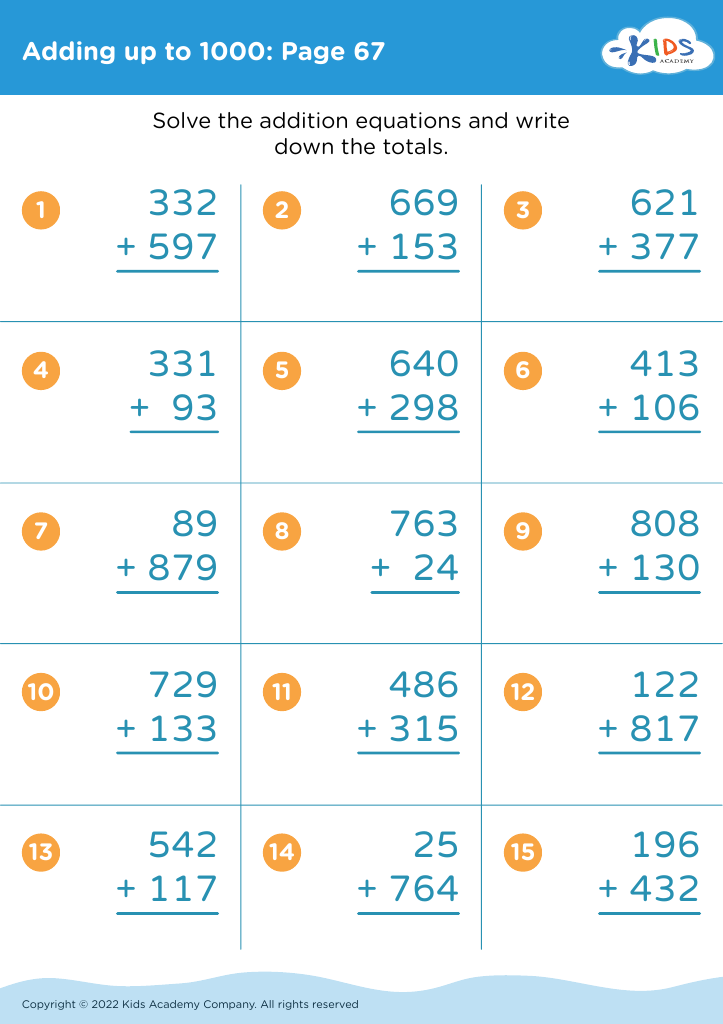Understanding multiplication Adding up to 1000 Worksheets for Ages 6-9
4 filtered results
-
From - To
Unlock your child's potential with our "Understanding Multiplication: Adding up to 1000" worksheets for ages 6-9. These engaging and educational resources provide foundational multiplication skills while reinforcing addition up to 1000. Ideal for young learners, our worksheets employ exciting visuals and interactive exercises tailored to keep your child motivated and confident. Each worksheet is meticulously designed to enhance numerical proficiency and build critical thinking. Perfect for classroom and at-home learning, these printable materials support homeschooling and traditional education. Prepare your little mathematician for future success with our comprehensive and fun multiplication worksheets!
Understanding multiplication and addition up to 1000 for children aged 6-9 is crucial for several reasons. Firstly, these are foundational math skills essential for later learning. Mastery of multiplication aids in grasping more advanced mathematical concepts such as division, fractions, and algebra. Additionally, proficiency in addition up to 1000 not only enhances computational skills but also boosts confidence and problem-solving abilities.
Building these skills at an early age sets the stage for academic success. It fosters logical thinking and the ability to tackle complex problems efficiently. In everyday life, multiplication and addition are used in various scenarios, such as calculating expenses, measuring ingredients in recipes, or understanding time and distances. Developing competence in these areas improves a child’s capacity to handle real-life tasks effectively.
Moreover, early mastery of these concepts establishes a positive attitude toward math. When children feel confident in their abilities, they are more likely to enjoy the subject and pursue learning with curiosity and enthusiasm. Therefore, parents and teachers play a vital role in supporting this crucial aspect of a child’s education, ensuring they have a solid mathematical foundation to build upon throughout their academic journey and everyday life.















